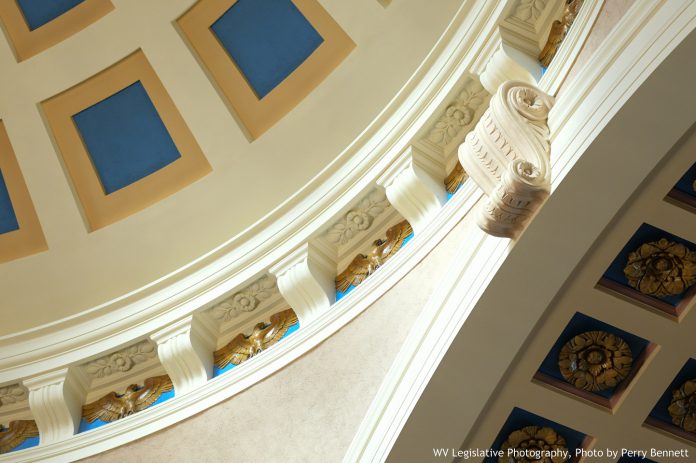Traditionally, the West Virginia Legislature is a citizens’ legislature comprised of average citizens representing the interests of the public. Elected officials have backgrounds in a wide range of professions from physicians to educators, coal miners to lawyers, insurance agents to nurses. Commonalities between the lawmakers include their allegiance to West Virginia and their desire to improve conditions for its citizens. On the second Wednesday of January each year, these representatives hang up the hats of their chosen professions and leave the comfort of their own homes to undergo a strenuous 60-day session for the benefit of their constituents.
Though the lawmakers are called in for interim meetings and special sessions throughout the year to study various topics, the bulk of decision-making takes place during the regular session. Over 2,000 bills are introduced during each session and approximately 200 make it to the Governor’s desk. The 60-day session may seem brief, but the progress made by these representatives is not to be taken lightly.
 A typical day for a lawmaker may begin with a committee meeting. Legislators collaborate to form 19 Senate Committees and 18 House committees. Legislation is considered within these committees and amendments and recommendations are presented to the bodies at large. Each Delegate is a member of at least one major committee and each Senator is typically among the membership of two major committees. These committees, including the Judiciary, Education, Finance and Government Organization of either chamber, meet nearly every day, often twice a day, to discuss bills at length.
A typical day for a lawmaker may begin with a committee meeting. Legislators collaborate to form 19 Senate Committees and 18 House committees. Legislation is considered within these committees and amendments and recommendations are presented to the bodies at large. Each Delegate is a member of at least one major committee and each Senator is typically among the membership of two major committees. These committees, including the Judiciary, Education, Finance and Government Organization of either chamber, meet nearly every day, often twice a day, to discuss bills at length.
In late morning, the bodies convene for their respective floor sessions. During the floor sessions, resolutions are adopted to recognize groups and individuals. Lawmakers introduce visiting pages and guests to the members. Afterwards, bills placed on the calendar are introduced and others are read for a first, second or third time. Bills being read for the third time are discussed and voted on by the legislators. Miscellaneous business is dealt with and further remarks are made by members. The House and Senate typically adjourn following their morning floor sessions, but as the session progresses, the bodies may go into recess after a morning session and reconvene in the afternoon for a second meeting, as needed.
Following the morning floor sessions, lawmakers attend additional committee meeting and public hearings. The most controversial, complex bills may be addressed through public hearings. These public hearings are often lead by sponsors and advocates of the bill and draw attention from the public as well as outside interest groups. Lengthy discussion often causes afternoon meetings and hearings to run late into the evening.
At the close of each day, lawmakers return to their offices to respond to a variety of correspondence and prepare themselves for the day to come.
To add to their responsibilities, the Capitol Rotunda is at capacity with visitors. Celebratory days at the Legislature such as “Fairs & Festivals Day,” “Corrections Day” and “History Day,” bring people from across the state to the Capitol. Lawmakers are able to meet with some of their constituents and gain a better understanding of what is happening throughout the state.
Despite the part-time nature of the West Virginia Legislature, the efforts of its members are quite the opposite. For an intense, productive 60 days, these men and women are swept away from family, friends, work and personal priorities. Year-round, they carry the designation and workload of a lawmaker, recognizing and fulfilling their responsibility to the citizens of West Virginia.

